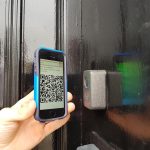The past five months have exposed a worrying lack of resilience across traditional real estate. The juxtaposition between what is currently on offer and how people want to live, work and use space is undeniable. And it is causing a problem.
Over the past six to seven years, the whole area of ‘proptech’ or property technology has appeared to come out of nowhere and dominate the industry conversations of property people. After more than two decades in the industry, I believe that is an over-simplification. Yes, real estate is born out of a very traditional need, however, there have always been pockets of innovation. It just so happens that technology has proven to be a great tool to deliver this innovation in recent years. But make no mistake, technology is simply the tool. This industry still needs forward-looking pioneers and thought leaders willing to rise to the level of captaincy. And captaincy is all about taking action. There needs to be action, even if this means risking failure.
Construction is an increasingly low-margin game, so much so that we cannot depend on this sector alone to deliver the scale of innovation needed in order to meet the changing demands and expectations of the contemporary property consumer. Data – and the insights to be gleaned from that data – holds the key to successful innovation. This is the core and it is why Standard Access exists today.
Of course, real estate development and design has not always been data-driven, there has been a disproportionate element of speculation and assumption, ‘build it and they will come’. This worked for a long time, however, increasingly demanding property users and increasingly discerning investors is changing the game. Decision-making needs to be more data-driven and for this to happen, market data, building data and indeed building use data all need to be complete. On the development side, we are seeing more local and global comparative data that is going beyond simple demographics, to the behaviours of property consumers, whether that is in their homes, their workplaces or in public spaces. For the good, forward-looking businesses, data and analytics has become a necessary tool of the trade. From the experiences of the Standard Access team, it is fair to say that proptech really doubles down on this and AI has exponentially broadened what was once thought to be possible, or even practical.
Unsurprisingly, changing demographics and evolving property consumer wants and needs have surfaced new problems (or highlighted old problems that are no longer deemed to be acceptable). This has prompted new innovations, new market entrants and new technologies – coupled with new industry applications of existing technologies.
Smart data means smart decision making
The University of Oxford’s Saïd Business School’s Proptech 2020 report identifies five areas of development for tech and innovation in the real estate sector: smart cities, smart buildings, the sharing economy, real estate fintech and data engineering.
Data engineering, according to Professor Andrew Baum, author of the report and all-around clued-in guy when it comes to technology for the built environment, is the “grimy plumbing” of proptech, but he also singles this out as the area where traditional property owners and operators can make the biggest gains. This is not a surprise to us, in fact, we have been waiting for the industry to see the value in what they are metaphorically sitting on. Whether it is through the strategic application of artificial intelligence (AI), machine learning or the aggregation of building specific or baseline data for comparison, as mentioned above, data holds the key to improved portfolio use, planning and management. This is positive for the experience of people using the space and it is positive for building performance over the entire lifecycle, which is positive for the environment and supports sustainability efforts across the industry globally.
The evolution of real estate is currently being driven by demographics, generational changes and a shift in the profile of investors – access to data and analytics has become a key differentiator and competitive advantage. Traditional operators will no longer be in a position to compete with this exponential and ever-changing bank of knowledge.
As real estate globally becomes more institutionalised, which we are seeing the start of right now, standardisation is the aim. Standardisation is predictable and predictable is good. Artificial Intelligence has opened the door for automation, better risk management and measuring value across real estate.
Where to start?
Standard Access invests in deep tech development and partners with construction or M&E (mechanical and electrical engineering) players in local markets that have the potential to drive and roll out the consumption of technologies much faster for building owners, operators and occupiers.
Also, Standard Access’ cloud-based data management platform for real estate centralises data in order to help developers, investors and occupiers to find innovative solutions to improve the offering, address generational changes and mitigate risk while preserving yields. You can read more about our range of solutions for commercial real estate and the growing PRS and multi-family sectors here: https://standardaccess.co/proptech-solutions-for-commercial-real-estate/
About Standard Access:
Established in 2014 by Damien Browne, Standard Access is a global leader in IoT solutions for smart building access and developer of the Sonic Handshake®, which is a revolutionary Data Over Sound technology to enable building and room access using an encrypted sound byte via app. www.standardaccess.co






